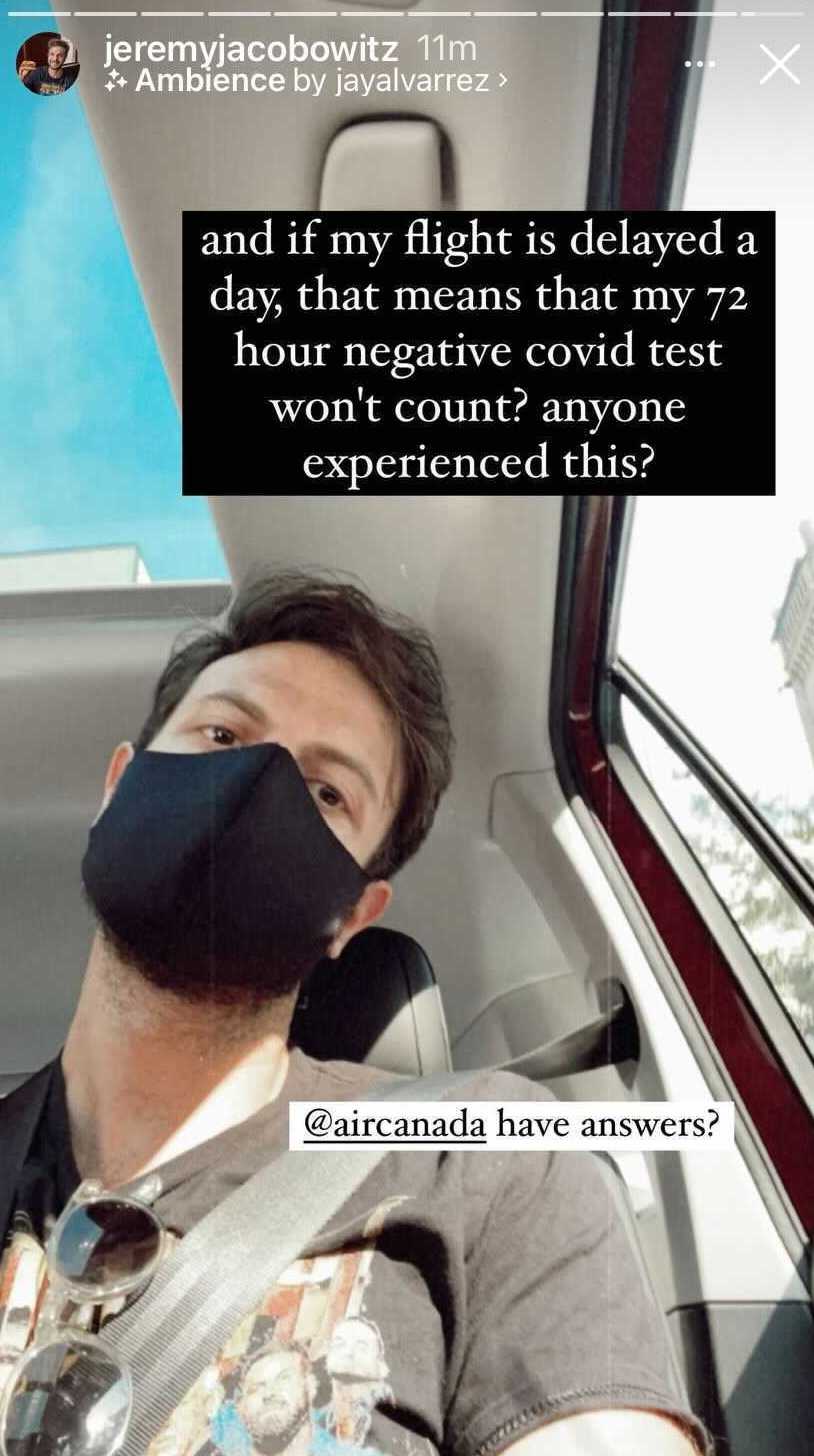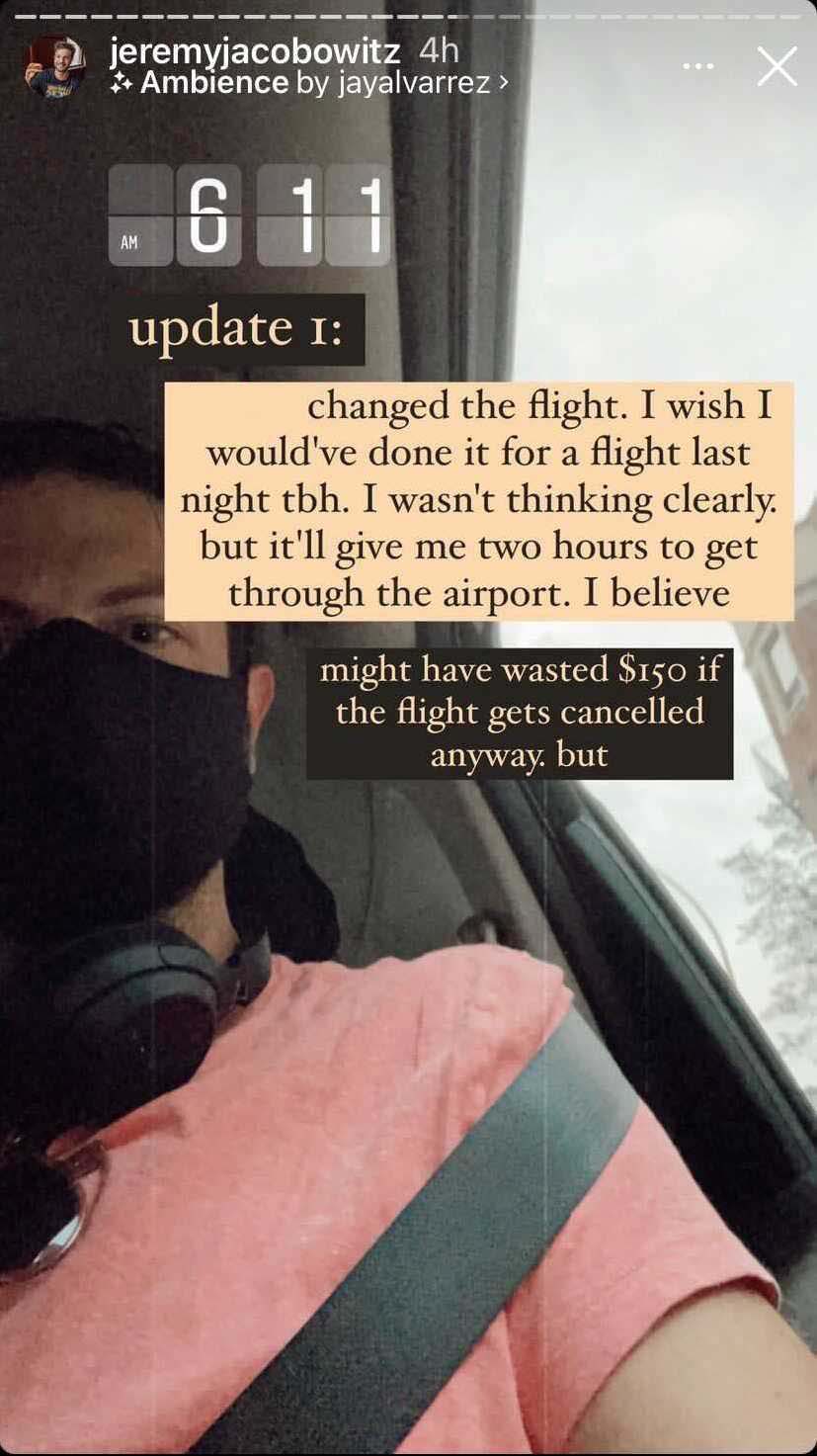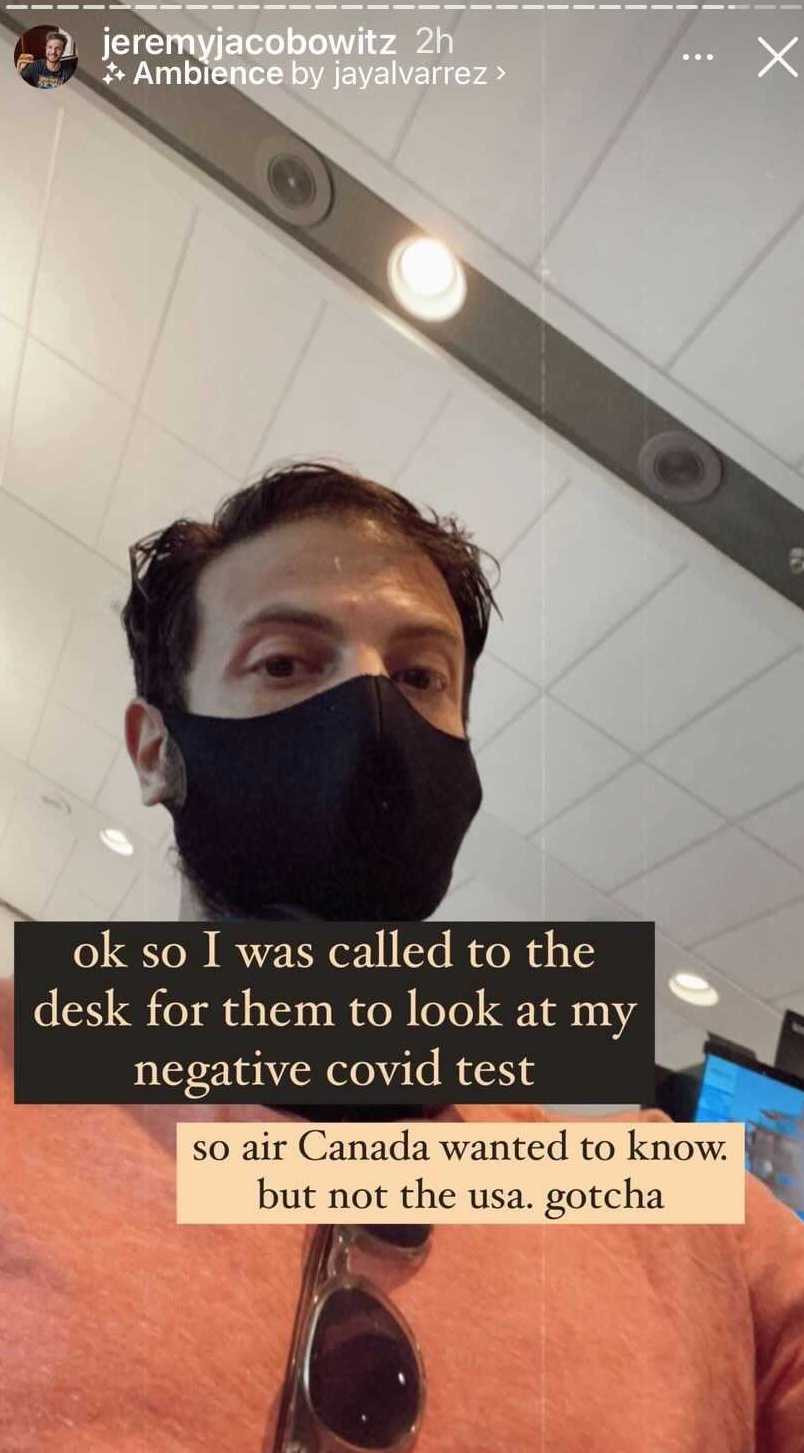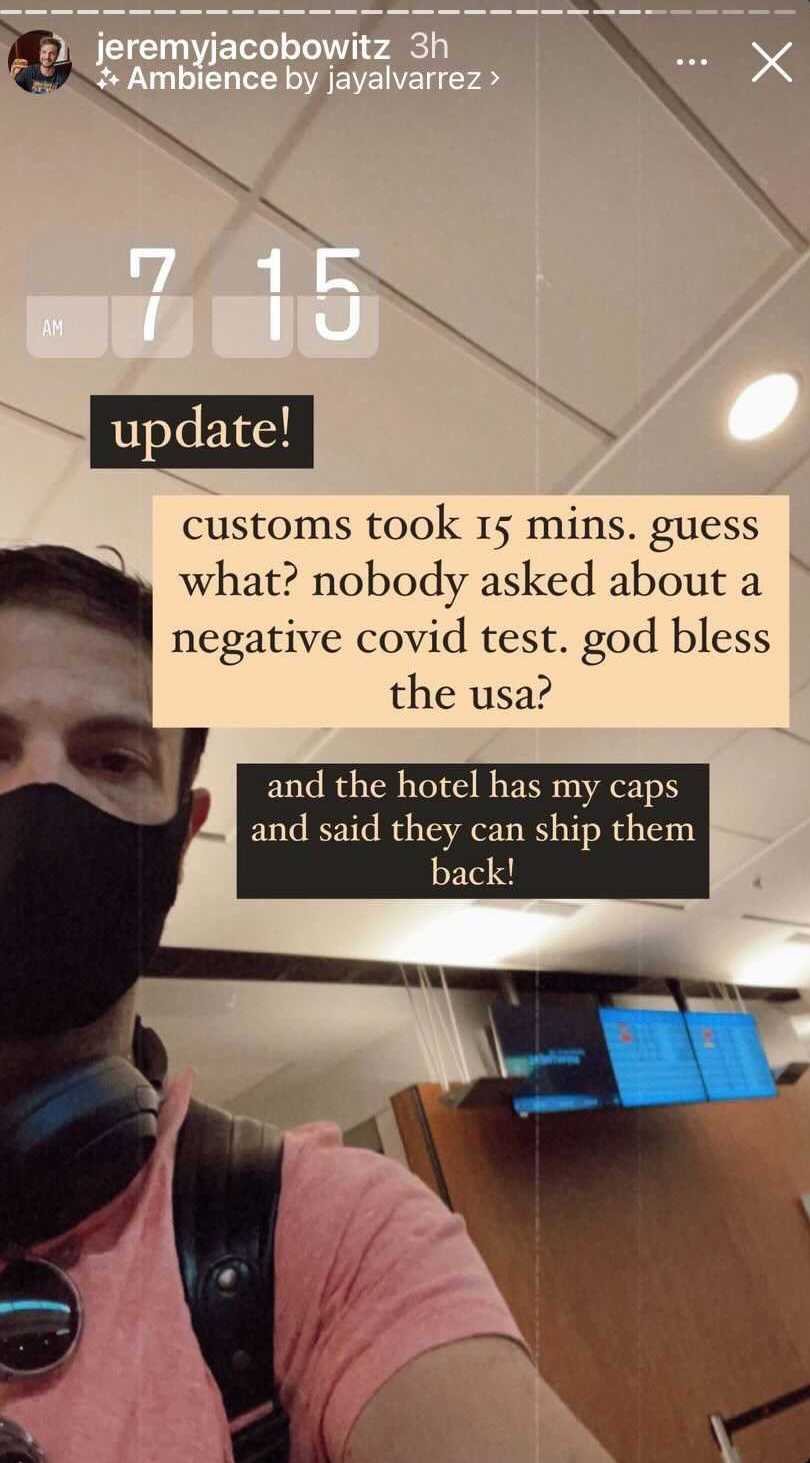The US requires a negative COVID-19 test taken within 3 days to get in the country. But what if your flight is delayed?
Since January, U.S. airlines have maintained a pre-travel testing mandate under the guidance of the U.S. Centers for Disease Control and Prevention which requires incoming passengers to show proof of a negative COVID-19 test taken within three days of departure to the U.S., vaccination status notwithstanding.
For more TPG news delivered each morning to your inbox, sign up for our daily newsletter.
This order has created a bit of confusion for travelers, due in no small part to the CDC’s wording of a “3-day period” versus a 72-hour period.
“The 3-day period is the 3 days before the flight’s departure. The Order uses a 3-day timeframe instead of 72 hours to provide more flexibility to the traveler. By using a 3-day window, test validity does not depend on the time of the flight or the time of day that the test was administered,” the CDC says. “For example, if a passenger’s flight is at 1pm on a Friday, the passenger could board with a negative test that was taken any time on the prior Tuesday or after.”
In its defense, the CDC uses a “3-day period” rather than specifying 72 hours to refrain from afflicting travelers with a math problem — calculating the window based on the exact time of your scheduled flight — on top of an already stressful travel situation.
“If you plan to travel internationally, you will need to get a viral test no more than 3 days before you travel by air into the United States and show your negative result to the airline before you board your flight,” the CDC advises.
In theory, the airline of your departing flight is tasked with checking this test, either when you check in for your flight or before boarding, as the CDC has lobbed the responsibility of confirming negative test results or recovery from COVID-19 for all passengers before boarding to airlines, as my colleague Victoria Walker previously reported.
“The CDC also said that airlines are responsible for ensuring any translation accuracy and may not shift this responsibility to a third party,” wrote Walker.
Related: Why do vaccinated travelers still need a COVID-19 test to fly back to the US from abroad?
This pre-check by the airline seems to serve as validation with U.S. Customs and Border Protection so that CBP rarely checks the test by the time you reach customs, as I know from my recent trip to London as well as from my TPG colleagues who have all traveled much more than me throughout the pandemic.
Airlines do not make the rules when it comes to travel-related COVID-19 testing requirements, despite the responsibility, but they are the ones travelers go to in a panic for real-time questions about flying during these pandemic times, as the case was last weekend when the threat of Tropical Storm Henri canceled more than 850 flights throughout the Northeast.
Travelers scheduled to come back to the U.S. the weekend of Aug. 21-22 were left wondering whether a delayed flight would mean their COVID-19 test would no longer be valid if their new flight meant it fell out of the aforementioned three-day window.
Read more: What it was like flying home now that the US requires a negative COVID-19 test
One concerned traveler was Jeremy Jacobowitz, the popular food blogger formerly known as Brunch Boys. Jacobowitz chronicled his confusion regarding his scheduled flight from Montreal to New York City on Aug. 22 on Instagram, seeking clarity if his original COVID-19 test would be accepted by Air Canada if Henri caused a delay.

“An airline cannot grant exemptions to this law,” an Air Canada spokesperson told me via email. “We have to follow the regulations of the government at the destinations where we travel to.” Representatives from Southwest and Delta confirmed this and referred me to the CDC guidance.
Interestingly enough, the CDC actually has an exception policy built-in for delayed flights to accept an original negative test if your initial departing flight is delayed less than 24 hours past the three-day limit for testing.
“If the initial departing flight in your trip is delayed past the 3-day limit of testing due to a situation outside of your control (e.g., delays because of severe weather or aircraft mechanical problem), and that delay is 24 hours or less past the 3-day limit for testing, you do not need to be retested,” per the CDC. “If the delay is more than 24 hours past the 3-day limit, then you will need to be retested.”
The agency also grants a 48-hour extension for delayed connecting flights.
Many travelers are not aware of this policy, including Jacobowitz, who resorted to paying $150 to come back earlier on Sunday morning so he wouldn’t have to be retested in case his noon flight was delayed.
Read more: CDC just released guidelines for airlines to verify a traveler’s negative COVID-19 results

“One of the confusing things seemed to be that Canada was really strict with ’72 hours’ on the dot, and America was more ‘3 days’ with leeway there,” Jacobowitz told me via email.
Indeed, it appears that airlines may be offering flexibility for situations like these by accepting tests so long as they fall within 72 hours of an originally scheduled flight time, despite Air Canada, Southwest and Delta all saying that U.S. airlines cannot make exemptions to U.S. law.
“From my conversations with everyone DM’ing me, they all had different experiences with a delayed flight,” said Jacobowitz, who has over 400,000 Instagram followers. “Some said as long as you don’t leave the airport, they were fine, some said they were told absolutely not, they had to get a new test, and some were just left with more questions than answers. It looks like it’s just how the airline wants to interpret these rules.”
Although Air Canada did not initially ask for his test during check-in, the blogger confirmed that they eventually did so before boarding.
Related: Traveling soon? Here’s where you can quickly get a COVID-19 PCR test for travel

In a surprise to no one, CBP was less than interested in verifying such when Jacobowitz arrived at New York’s LaGuardia (LGA).

Should you find yourself in an inevitable delay coming back to the U.S., Jacobowitz told his followers to consider packing an in-home COVID-19 test kit to avoid the hassle of finding a testing location in a foreign country.
“Buy an at-home kit before leaving America, unfortunately, they don’t just sell kits like that in Canada,” he said. “So it would have required me to pay for a rapid test there, which while widely available, and at the airport, the fees of these tests added up really quickly.”
Bottom line, the CDC offers an additional 24-hour grace period for delayed flights outside of your control. While at-home testing options are not bulletproof, as users have reported hourslong waits for results, they are a backup option that offers flexibility, which is key in the game of pandemic travel.
Read more: Travelers facing hourslong waits for BinaxNow’s in-home COVID test
Featured photo a COVID-19 testing site at Orlando International Airport on Aug. 6 by SOPA Images/Getty Images.
